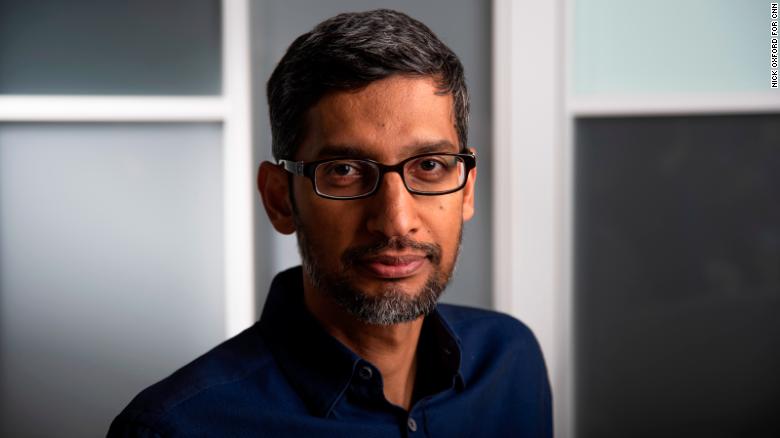
THE ANTI-HINDU MAFIA:INDIA HAD SURVIVED OVER 200-YRS WITHOUT ANY GOVERNMENT TILL 2017)Our eyes are cameras and, we are over a billion year old self operating wireless electro-bio beings running a 2-D Electro-Encoded, Brain+Mind+Modem-Antenna program. No different than a wireless driver less car or Electro-Mechanical Appliance. You must enact your 3rd-eye to see and to rescue yourself. Planet earth is irrelevant and not the cosmic universe. INDIA IS FOR PILGRIMS-PILGRIMAGE NOT FOR TOURISTS.
Blog Archive. INDIA AND NEPAL ARE FOR PILGRIMS-PILGRIMAGE AND NOT FOR TOURISTS-TOURISM.
Sunday, February 23, 2020
Saturday, February 22, 2020
Wednesday, February 19, 2020
EVERYTHING IS ELECTRONS @ ELECTRONIC UNIVERSE...Maha Shivaratri Special: All You Need To Know About Shiva | Gurudev Sri ...
- SHIVA CAN ONLY BE EXPERIENCED. WORDS, WRITINGS AND LECTURES ARE OF NO VALUE..
- SHIVA CAN BE EXPERIENCED MATHEMATICALLY BY INQUIRING ABOUT THE SMALLEST NUMBER. IF EVER YOU EXPERIENCE THE SMALLEST NUMBER, IT ENDS IN AN UNENDING SOUND.
Friday, February 14, 2020
Tuesday, February 11, 2020
Thursday, February 6, 2020
Tuesday, February 4, 2020
Western education of Artificial Mental Education is doomed. Good for soldiers, but not for Consciousness.
- THE WIRELESS MIND-MODEM+BRAIN ANTENNA APP IS THE ENEMY OF CONSCIOUSNESS-3RD EYE, THE ONLY EYE.
- THE OTHER TWO EYES ARE CAMERAS FEEDING THE SAME ARTIFICIAL MIND. GOOD FOR DUNCES AND SOLDIERS.
- GURUKUL TO THE RESCUE OF CIVILIZATION.
9 reasons the Indian CEO keeps coming to the rescue

Now PlayingSundar Pichai: I never...
S. Mitra Kalita is the senior vice president for news, opinion and programming at CNN Digital. She is the author of two books, one on migration to American suburbia and the other on globalization. The opinions expressed in this commentary are her own.

IBM tapped Arvind Krishna as its next CEO last week. And this week WeWork hired
They join a growing number of global CEOs of Indian origin, according to social media, news reports and online searching (incidentally, Google is run by an Indian).
Here's who I came up with:
- Shantanu Narayen, Adobe
- Sundar Pichai, Alphabet, the parent company of Google
- Satya Narayana Nadella, Microsoft
- Rajeev Suri, Nokia
- Punit Renjen, Deloitte
- Vasant "Vas" Narasimhan, Novartis
Ajaypal - Ivan Manuel Menezes, Diageo
- Niraj S. Shah, Wayfair
- Sanjay Mehrotra, Micron
- George Kurian, NetApp
- Nikesh Arora, Palo Alto Networks
- Dinesh C. Paliwal, Harman International Industries
A disclaimer that this is hardly complete or exhaustive. Some are the children of Indian immigrants but I
To be sure, there is a risk of reading into one group's success as a case of Indian exceptionalism

From left, Sundar Pichai, Satya Narayana Nadella and Shantanu Narayen
I've broken down some of these factors with the intention that the lessons within might apply to all of us. Among them:
1. An acceptance of change and uncertainty. Every company is grappling with some form of disruption. Now picture India, a country of more than 1 billion people, dozens of languages, uneven infrastructure. At every turn is uncertainty, including whether water will emerge from the tap in the morning to brush your teeth. This breeds with
2. Seeing around the corner. The ability to predict what's shaping our marketplace is a necessary trait in a leader. Indians are especially equipped, thanks to their embrace of data and constantly, perhaps unconsciously, crafting a Plan B (in case no water comes out).
Consider the future of malls in America as articulated by Mathrani, the real-estate veteran just named to run WeWork
This might not seem revolutionary but
3. All about metrics. I do not want to feed the stereotype of Indians as good at math (I have never gotten over my own C in calculus). But here's another way of looking at it: When you grow up in a country of 1 billion people, everything boils down to odds. The odds of gaining admission to nursery, grammar school, then college; of your standing and class rank within each; of
MORE PERSPECTIVES ON MANAGEMENT & LEADERSHIP
Today that role more fancily falls under "data intelligence" and has landed an important seat at the table, not to mention a skill required in modern CEOs. Incidentally, at least three of the men (yes, the gender imbalance is another metric worth pointing out) on my list (Pichai, Arora and Krishna) above are graduates of the prestigious Indian Institutes of Technology, a group of engineering colleges with acceptance rates reportedly
4. Education, especially STEM. Indian immigrants are among the most highly educated in the US; according to Pew, 77.5% had a bachelor's degree or higher in 2016 -- the highest share of any top origin country -- compared to 31.6% of native-born Americans. At the graduate level over the last few decades, foreign-born students have filled the gap of fewer Americans studying computer science and engineering, although growth is slowing. These are skills coveted not by just Big Tech; if you sell furniture on the internet, for example, you might feel more like a tech company than a retailer.
5. Work as family and the original helicopter parents. When Indra Nooyi was named CEO of PepsioCo, well-wishers visited her mother's home in India to offer congratulations. That gave Nooyi, who stepped down in 2018, an idea: to write thank you cards to the parents of Pepsi's star performers. "I was a product of my upbringing," she said. "It occurred to me that I had never thanked the parents of my executives for the gift of their child to PepsiCo."
Millennials' parents are more involved in their children's careers than ever, and I can only imagine their reaction to a letter allowing them to share the trophy, too. Indian companies, which have long served tea in the break room or welcomed colleagues to the boss' sister's wedding, are firmly ahead of the trend rising in the West of blurry
6. Diversity. A diverse workforce and leadership has perhaps never been more important to companies. A survey by Deloitte (also run by an Indian CEO) found 69% of employees who believe senior management is diverse see their working environments as motivating and stimulating versus 43% who don't perceive leadership as diverse.
That being said, the men on this list -- diverse candidates who land the top job -- are the exception rather than the rule. Asians are well-represented in technology companies, but severely underrepresented
Most Indians owe their arrival on U.S. shores de
7. Authenticity and adaptation. We've been in the age of authenticity for some time, partly thanks to Twitter but ... the analysed to
8. Time is precious, time is infinite. When I moved to India in 2006, I discovered the notion of synchronous time and how it applies to the workplace. Americans tend to be sequential and focus on the binary; there's life and work. A deeper definition: "Time perception means the way we view the passing of time; is this for us a series of passing events (sequential) or is it synchronic, where past, present and future are all interrelated?"
This theory jives with the approach of Satya Nadella, CEO of Microsoft, in redefining balance. "What I'm trying to do is harmonize what I deeply care about, my deep interests, with my work," he told the Australian Financial Review. I view Microsoft as a platform for me to be able to pursue my own passions. And that gives me a lot of meaning, and that, to me, is the ultimate form of relaxation."
9. A belief in meritocracy. An immigrant rising to be CEO of a Fortune 500 company is rare and remarkable, and yet also supposed to be the way America works. Oversimplified perhaps, it is the hardscrabble narrative that markets, investors and employees cling to, a tenet of U.S. capitalism ... plenty
Indeed, it might just be the Indian CEO who saves it.
Subscribe to:
Comments (Atom)
















